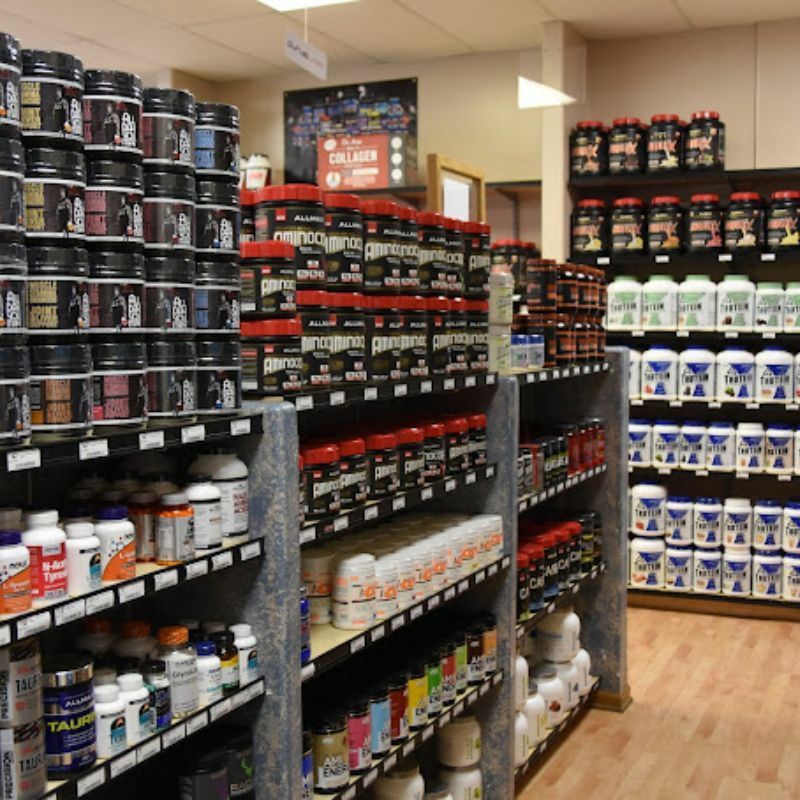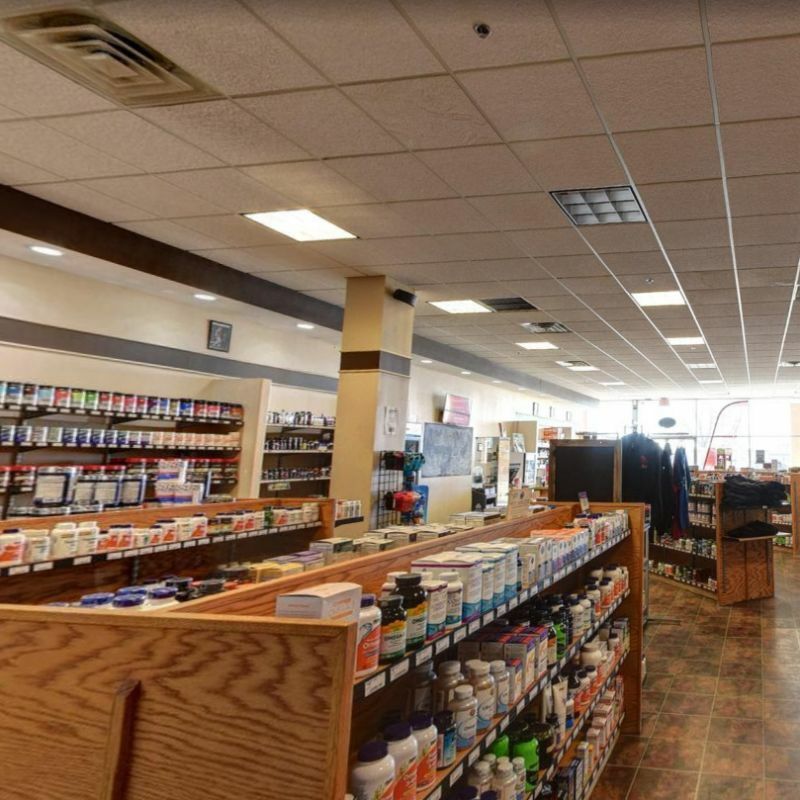I’m going to give you a little bit of chemistry here, rest assured I will summarize everything so it makes sense. Beta glucan is a naturally occurring, complex polysaccharide (also referred to as glucose polymer). Beta glucan is one of the most abundant forms of polysaccharide found inside the cell wall of bacteria and fungus.1 The term ‘beta’ (β) is used to describe the carbon that is one removed from a functional group or other moiety. Beta glucan is a general term for glucose polymers linked together by a 1 → 3 linear beta glycosidic chain core. Where they differ amongst each other is in their length and branching structure. Where the glycosidic linkage is, determines the numbers you see next to beta glucan. Most β-glucans are considered non-digestible carbohydrates (fiber), and are fermented to various degrees by intestinal microbial flora. Some forms are water-soluble and others are water-insoluble. OK, so that’s some of the chemistry, hope I didn’t lose you yet.
Figure 1 shows beta glucan as one of the key components of the fungal cell wall. The basic subunit of the fungal β-glucan is shown, β-D-glucose linked to one another by 1→3 glycosidic chain with 1→6 glycosidic branches.1
Sources & Foods for Beta Glucan
Beta glucan must be obtained from exogenous (outside the body) sources. Sources of beta glucan include barley, oats, reishi mushrooms, maitake mushrooms, seaweed, algae, shiitake mushrooms, and baker’s yeast (Saccharomyces cerevisiae). Note a lesser amount is found in wheat and rye. One and a half cups of cooked oatmeal or three packets of instant oatmeal provide 3 g of beta-glucans; 1 cup of cooked pearl barley contains approximately 2.5 g of beta-glucans.2 Many individuals use supplements for a concentrated source of beta glucan.
Immune System Effects
Beta glucan is purported to boost the immune system, which in turn helps immune cells recognize and destroy cancer cells. Since beta glucans are not found in human cells, the innate immune system recognizes them as foreign invaders, and triggers an immune response. The innate immune system, as opposed to the adaptive immune system reacts quickly, in a non-specific fashion by activating immune proteins and phagocytic cells that quickly recognize and destroy pathogens. Beta glucan also affects the adaptive immune system, I’ll spare you the details of the specific activity (for those of you interested in the details, I recommend reading this review).
Based on current evidence, beta glucans do not have direct cytotoxic effects. The evidence that has suggested it does, is confounded by the use of beta glucan containing herbs that have been found to have anti-cancer effects independently.1,3,4 This means to date, despite claims, it has not been demonstrated to directly kill cancer cells.
Beta Glucan & Cancer
You will often see or hear about beta glucan being used as a complementary medicine by cancer patients. The reason as outlined above relates to the potential immune system modulation. In relation to this effect, there is a possible downstream effect through activation of cytokines including interleukin (IL)-12, IL-6, IL-10 and tumor necrosis factor-α.7 As previously discussed, some beta glucans (vary based on linkage and branching) are non-digestible, and are fermented to varying degrees by gut microbes. Therefore, some research suggests that some of the immunomodulatory effects are microbial dependent.2,3 It is also very important to note that the majority of the research conducted to date, have been in vitro studies using human cancer cell lines and animal studies.6 This is not to say that animal and in vitro research are not relevant, as it does have a place in the continuum of evidence. That stated there are differences between humans and animals, which means human research is essential for external validity.8 The same is true for in vitroresearch, in so far as the elimination of the numerous variables within the body, limits the weight and applicability of the evidence. Also, some marketers point to research that they have a superior form/blend of beta glucans.Given the level of the current evidence on beta glucan in general, the research touting these effects should be viewed in the proper context (i.e. we need more in vivo human research). 9,10
Weight Loss, Skin Health, and Other Effects
Beta glucan, similar to many fiber sources can help increase satiety (fullness) and regulate blood glucose levels. The latter is accomplished by the beta glucan slowing absorption. The increase in satiety can help reduce energy intake, and consequently lead to weight loss. These effects from increased dietary fiber intake, including beta glucan, have been associated with a decrease in type II diabetes risk.11
Beta Glucan & Skin
Oat beta glucan (1,4; 1,3) is water soluble and is used in some topical skin care formulas. It is used for sensitive skin reactions to improve healing, and can help reduce skin irritation (redness). Although the exact mechanism remains unknown, the theory is that the increased wound healing is attributed to macrophage infiltration of the wound, and consequent tissue granulation from collagen biosynethsis.12,13 The proposed mechanism of action for wound repair, has resulted in an interest for topical beta glucan for the purpose of anti-aging/wrinkle reduction. One study with 27 subjects using an oat beta-glucan cream (0.1%, 1,4;1,3) on one side of their face, and a placebo (formula not disclosed) found that the beta glucan cream was more effective for wrinkle reduction. The measures were both objective and subjective.14
Beta Glucan Benefits Summarized
- Boosts immune system
- May help kill cancer cells via increased immune response (see above for details)
- Helps regulate blood glucose levels
- Increases satiety (feeling of fullness)
- Helps weight loss
- May improve skin wound healing
- May have anti-aging/wrinkle reducing effects
Dosage
The commonly recommended dose is dependent upon one’s health status. An otherwise healthy individual is recommended to take 100-200 mg/day for immune support. An immune compromised individual, such as someone receiving cancer treatment would want to take 500mg/50 lbs. (Ex: 150 lbs. – 1500mg/day). This should be taken approximately 30 minutes before meals with water. Please note, as is the case with validating the effects, more human evidence is needed for an evidence based dose.
Conclusion
Overall, based on the current evidence, beta glucan does have promise. However, it is not a miracle nutrient, and there is a need for human in vivo studies to broaden our understanding of beta glucan.
Available Beta Glucan Supplements
References
- Chan GC, Chan WK, Sze DM. The effects of beta-glucan on human immune and cancer cells. J Hematol Oncol. 2009 Jun 10;2:25. doi: 10.1186/1756-8722-2-25.
- Webb D. Betting on Beta-Glucans. Today’s Dietitian website. http://www.todaysdietitian.com/newarchives/050114p16.shtml. Updated May 2014. Accessed May 13, 2015.
- Tang W, Liu JW, Zhao WM, Wei DZ, Zhong JJ. Ganoderic acid T from Ganoderma lucidum mycelia induces mitochondria mediated apoptosis in lung cancer cells. Life Sci. 2006;80:205–211. doi: 10.1016/j.lfs.2006.09.001.
- Muller CI, Kumagai T, O'Kelly J, Seeram NP, Heber D, Koeffler HP. Ganoderma lucidum causes apoptosis in leukemia, lymphoma and multiple myeloma cells. Leukemia research. 2006;30:841–848. doi: 10.1016/j.leukres.2005.12.004.
- Wang H, Weening D, Jonkers E, Boer T, Stellaard F, Small AC, Preston T, Vonk RJ, Priebe MG. A curve fitting approach to estimate the extent of fermentation of indigestible carbohydrates. Eur J Clin Invest. 2008;38:863–868.
- Mannion C, Page S, Heilman Bell L, Verhoef M. Components of an Anticancer Diet: Dietary Recommendations, Restrictions, and Supplements of the Bill Henderson Protocol. Nutrients. 2011 Jan; 3(1):1-26. doi: 10.3390/nu3010001.
- Taylor PR, Brown GD, Herre J, Williams DL, Willment JA, Gordon S. The role of SIGNR1 and the beta-glucan receptor (dectin-1) in the nonopsonic recognition of yeast by specific macrophages. J Immunol. 2004;172:1157–1162.
- Pound P, Ebrahim S, Sandercock P, Bracken MB, Roberts I, Reviewing Animal Trials Systematically (RATS) Group. Where is the evidence that animal research benefits humans? BMJ : British Medical Journal. 2004;328(7438):514-517.
- Vetvicka V, Vetvickova J. β 1,3-Glucan: Silver Bullet or Hot Air? Open Glycoscience. 2010, 3-1-6.
- Vetvicka V, Vetvickova J. Comparison of immunological effects of commercially available β-glucans. Applied Scientific Reports. 2014.
- Salmerón J, Manson JE, Stampfer MJ, Colditz GA, Wing AL, Willett WC. Dietary fiber, glycemic load, and risk of non-insulin-dependent mellitus in women. JAMA. 1997 Feb 12;277(6):472-7.
- Delatte SJ, Evans J, Hebra A, Adamson W, Otherson HB, Tagge EP. Effectiveness of beta-glucan collagen for treatment of partial thickness burns in children. J Pediatr Surg. 36, 2001;113-118.
- Portera CA, Love AJ, Memore L, et al. Effect of macrophage stimulation on collagen biosynthesis in the healing wound. Am Surg. 1997 Feb;63(2):125-31.
- Pillai R, Redmond M, Rӧding J. Anti-Wrinkle Therapy: Significant New Findings in the Non-Invasive Cosmetic Treatment of Skin Wrinkles with Beta-Glucan. International Journal of Cosmetic Science. 27: 292. doi: 10.1111/j.1463-1318.2005.00268_3.x.





